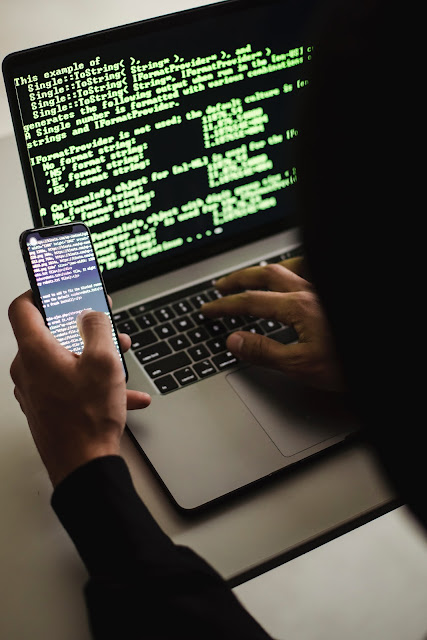Understanding Helper Function in JavaScript


Beginner’s Guide: How to Start Learning Coding Successfully

|
| photo-credit: pexel.com |
Introduction
Learning how to code is becoming increasingly valuable, no matter what your career path is. Whether you're a beginner looking to enter the software industry, a computer science student, or simply want to brush up on your coding skills, it's a great skill to have in recent times.
I still remember my first encounter with a computer screen full of programming code. it was confusing and overwhelming, like an entirely different language. Even though I recognized a few words such as "return", "lazy", and "print", they were still surrounded by symbols and numbers that made them difficult to understand. If you're feeling this way too, don't worry
- you're not alone. Many programmers feel lost when first viewing C++, Java, or even HTML code, and many other programming languages too. However, they eventually learned how to turn that confusion into an elegant website, an
interesting mobile/desktop application, or even an exciting game.
In this article, I will be answering some of the questions that a complete beginner might have on their coding journey. I will also, share some basic coding fundamentals and best practices to consider as you embark on your coding journey. These 10 steps will guide you through the beginning of your journey.
10 Rules to Learn to Code in 2024
Choosing the right programming language is a crucial decision. However, there is no such thing as a "perfect" language. A programming language is just a tool to help you accomplish a task. Therefore, the choice of programming language should depend on the specific type of project you are working on and the problem you aim to solve. It is essential to do your research to determine which language is the best fit for the particular problem you are facing or the project you are working on.
2. Set Clear Goals:
To stay motivated, especially as a self-taught coder, it's important to establish
clear coding objectives and purpose early on. This could be for web development, data analysis, game design, or any other coding-related field. One effective way to code with a purpose or goal is to select a simple project to work on while you learn. This approach will help you avoid programming
roadblocks, such as "tutorial hell," which we'll discuss in greater detail in another article.
3. Learn the Basics First:
It cannot be overstated how crucial it is to know the fundamentals of coding. With a strong foundation built on basic coding concepts such as variables, loops, and data structures, it will be easier to comprehend advanced topics.
4. Learn the basic principles of coding:
To write clean code, it is important to follow the right programming principles such as writing comments in your code, keeping it simple, avoiding repetition(i.e., writing DRY code), ensuring single responsibility, and more. We will be discussing many more principles in my next post.
5. Utilize Online Resources:
It's perfectly fine to not know everything, even the most skilled programmers get stuck sometimes. That's why it's important to seek help. As Obama once said, "Don't be afraid to ask for help when needed. Asking for help isn't a sign of weakness." There are plenty of resources to take advantage of, such as consulting ChatGPT, referring to the MDN Web Docs, searching for answers on Google, or joining online coding communities like Stack Overflow...
6. Build Real Projects:
It is crucial to have hands-on experience in coding. As I have mentioned earlier in Role 2, it is important to create projects that interest you as it will keep you motivated while you learn how to code. Even if you don't have the know-how yet, it is perfectly fine to be a "copycat" and use source codes from others to create your own notepad, tic tac toe game, and more. These projects will not only be useful, but they will also give you the opportunity to figure out how to do things.
7. Join Coding Communities and Ask for Feedback on your Code:
Coders have built communities around career paths, projects, specific languages, and regions of the world, they share tips and best practices, and even sections of codes with people of like minds. So if you’re new, stuck in a loop, looking for guidance, or inspiration, or want feedback on a project, these can be a helpful space for you. Here is a list of coding communities for you to join:
Don't get discouraged by errors. Debugging is an essential part of coding and
presents an excellent learning opportunity. Moreover, in 2023, there will be
numerous coding debugging tools and techniques that you can consider learning and adding at least one to your toolbox.
In the tech industry, change is constant. With advancements and deprecation of technologies happening simultaneously, it's crucial to keep updated with the latest coding trends and techniques to remain relevant and valuable.
10. Never stop Learning:
Coding is an ever-changing field. To stay competitive, it's important to keep an open mind and embrace continuous learning. The tech industry is all about creativity, and the best creatives practice regularly. If you already have a good grasp of the core programming concepts, learning a new language will be a lot easier. Don't hesitate to try new concepts and keep improving your skills.
Conclusion
In conclusion, these 10 rules will help you navigate the coding landscape in 2024. Stay focused, keep learning, and let your coding journey begin.
Feel free to contact me via my email or leave your comments, questions, or suggestions in the comment box as I'll be happy to receive them and try my best to answer them.
. . .
Thank you for reading!👋🏽✨
Comments
Post a Comment